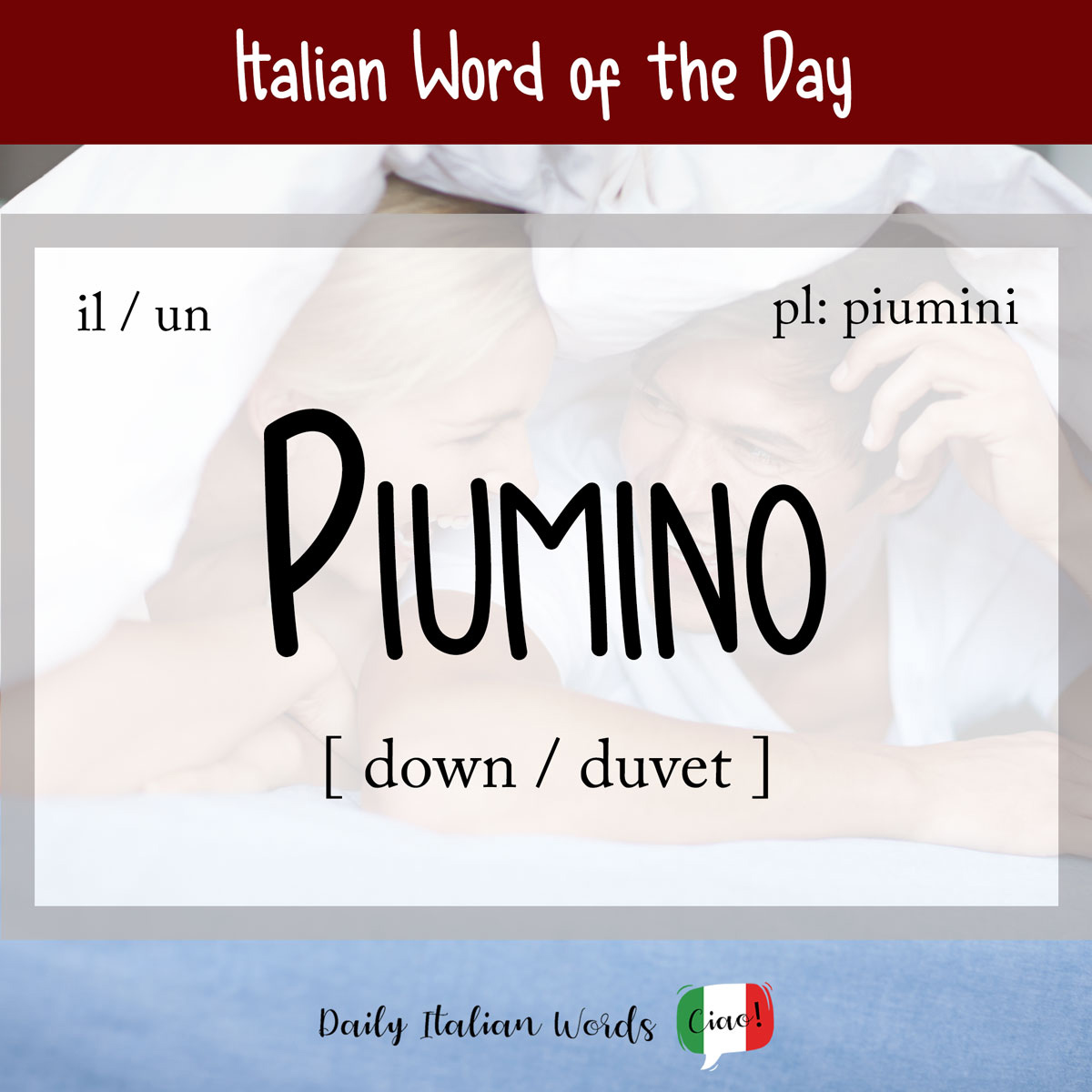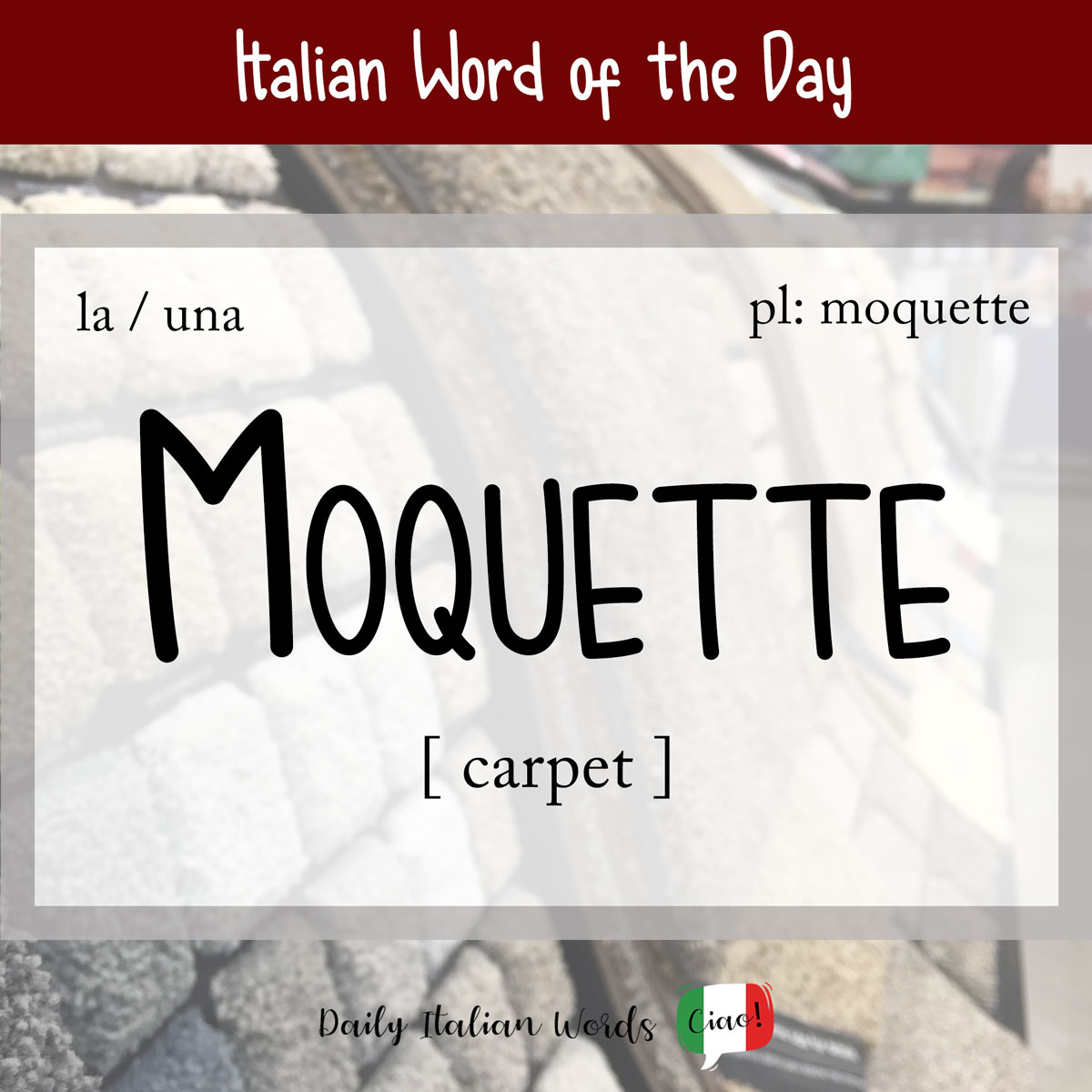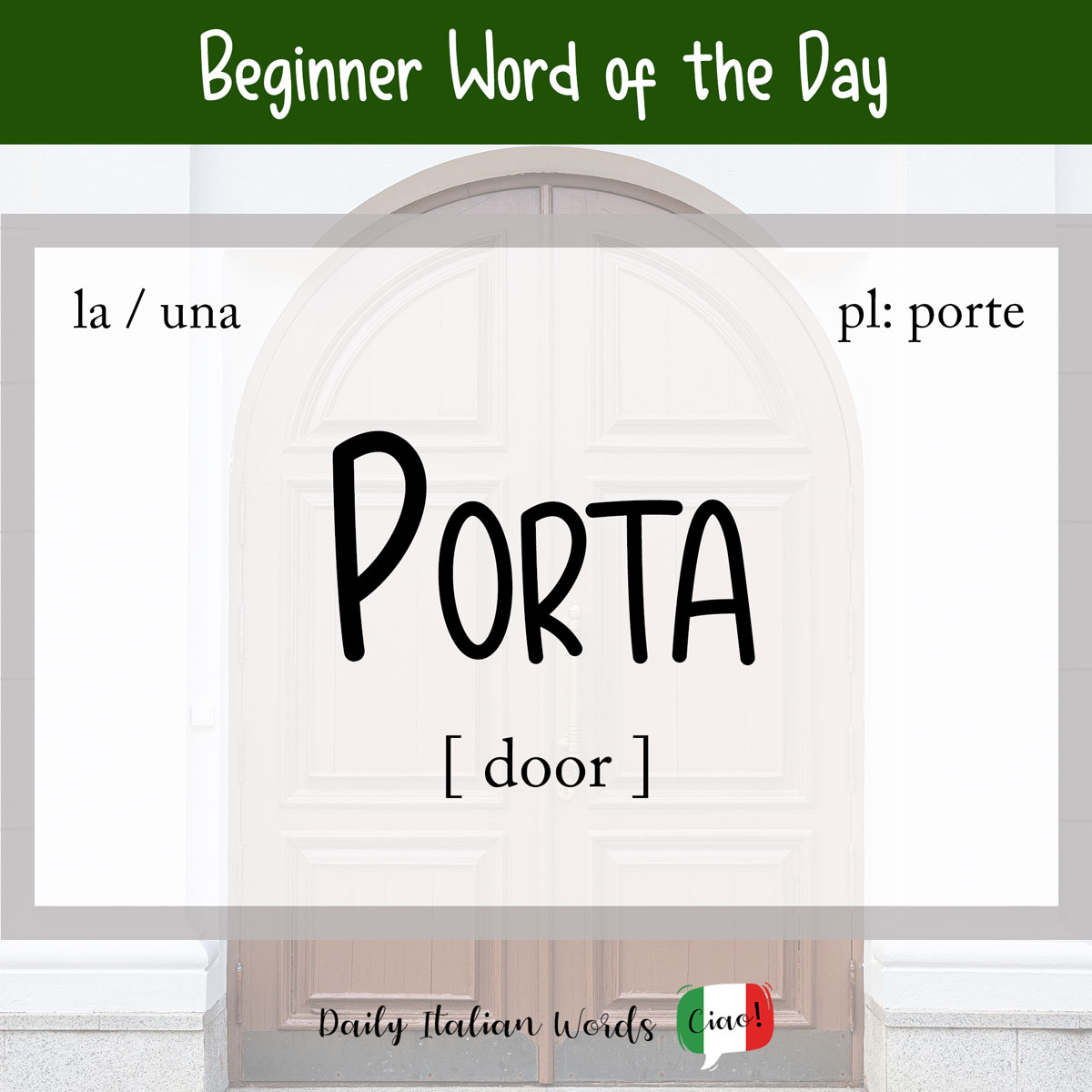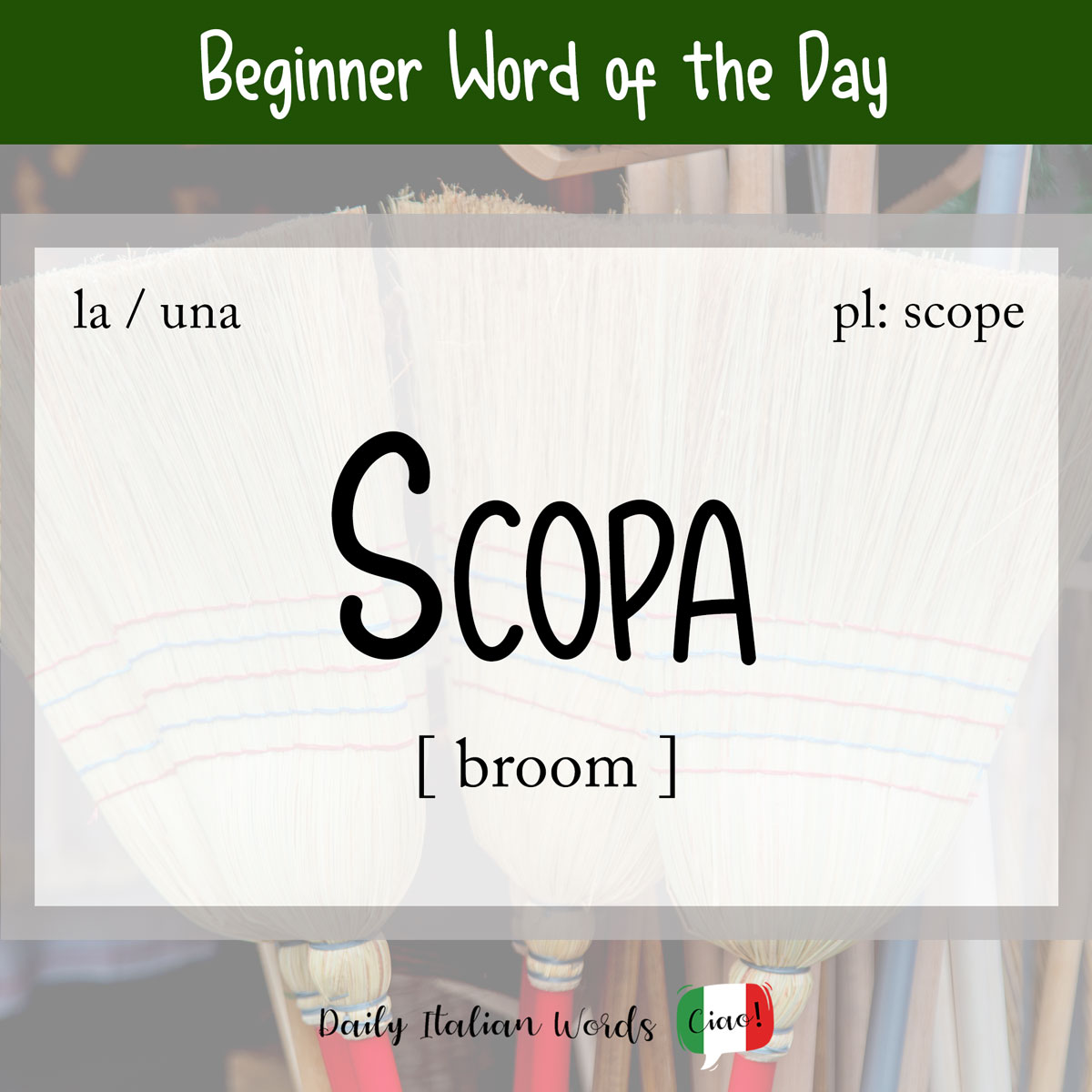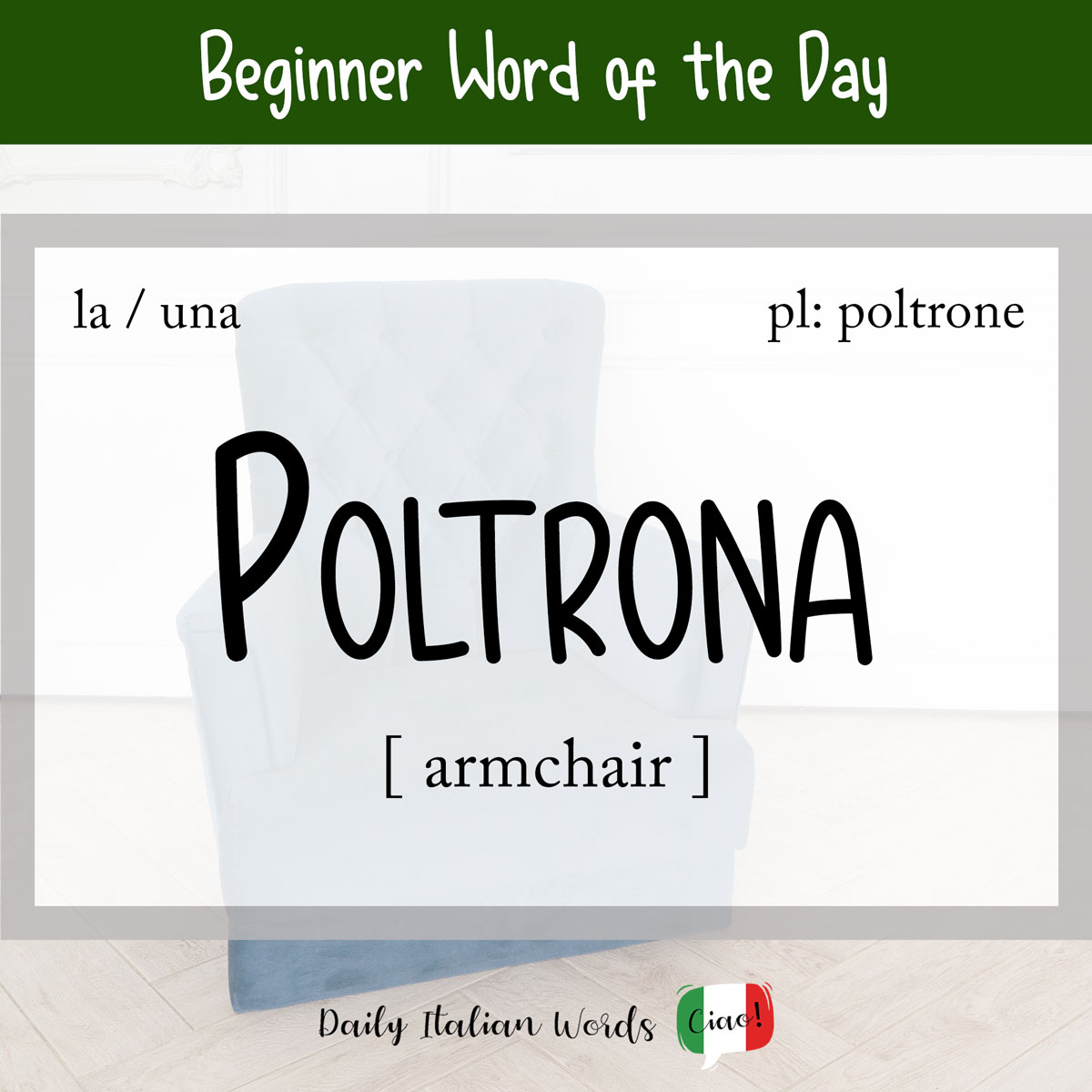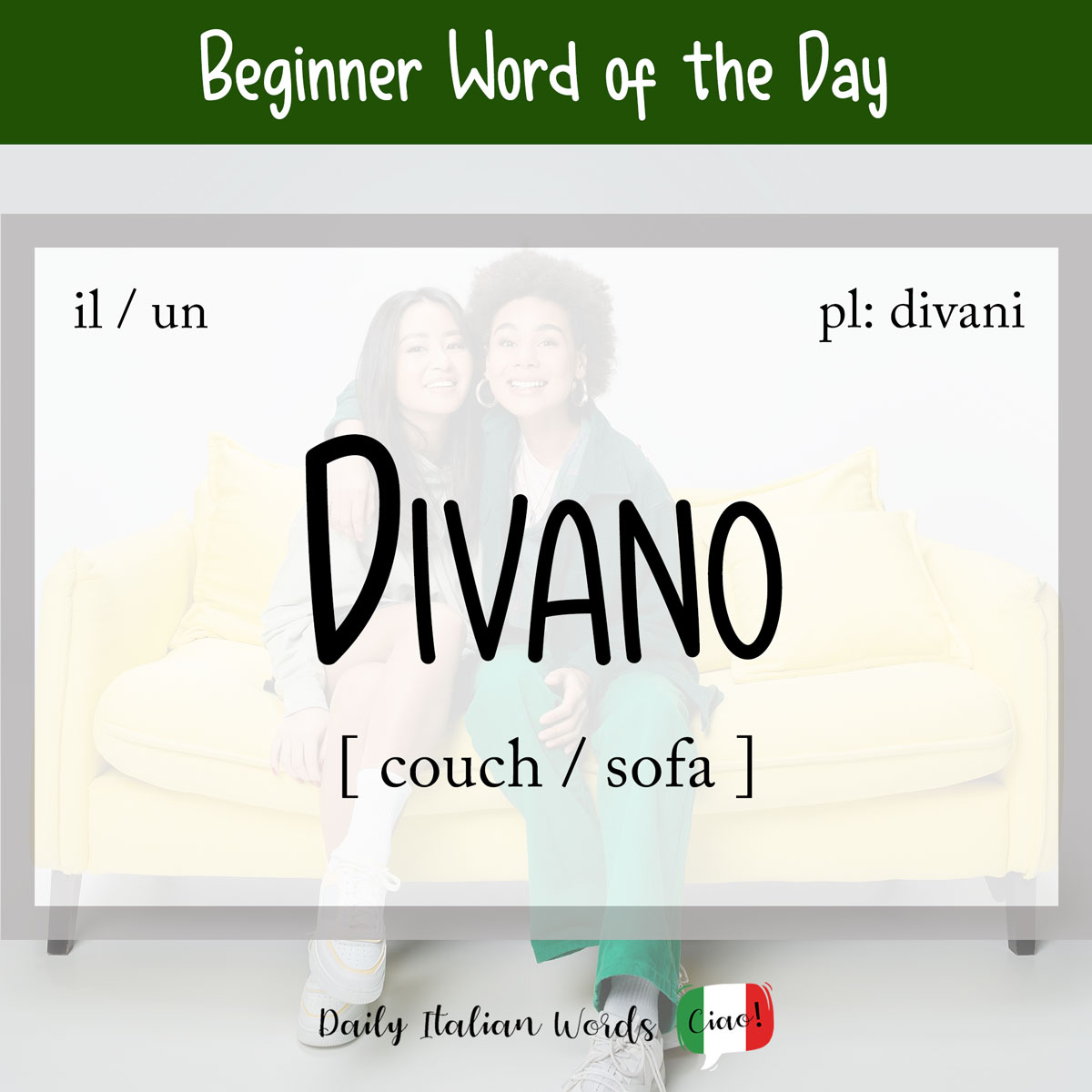Italian Word of the Day: Piumino (down / duvet)
Some Italian words encompass multiple meanings, extending far beyond their original definitions, and our word of the day piumino is no exception! Piumino is a derivative of piuma meaning feather. It is a masculine noun that takes the following definite and indefinite articles: Originally, piumino designated the down of birds, which is the layer of …

